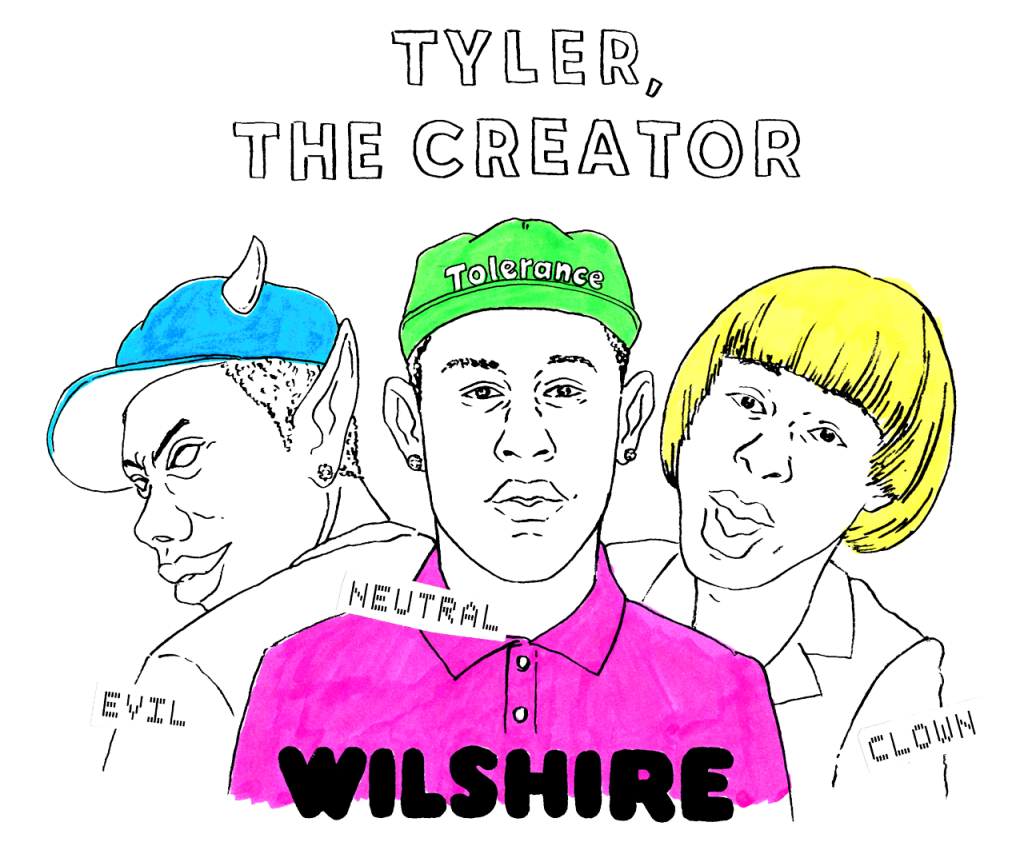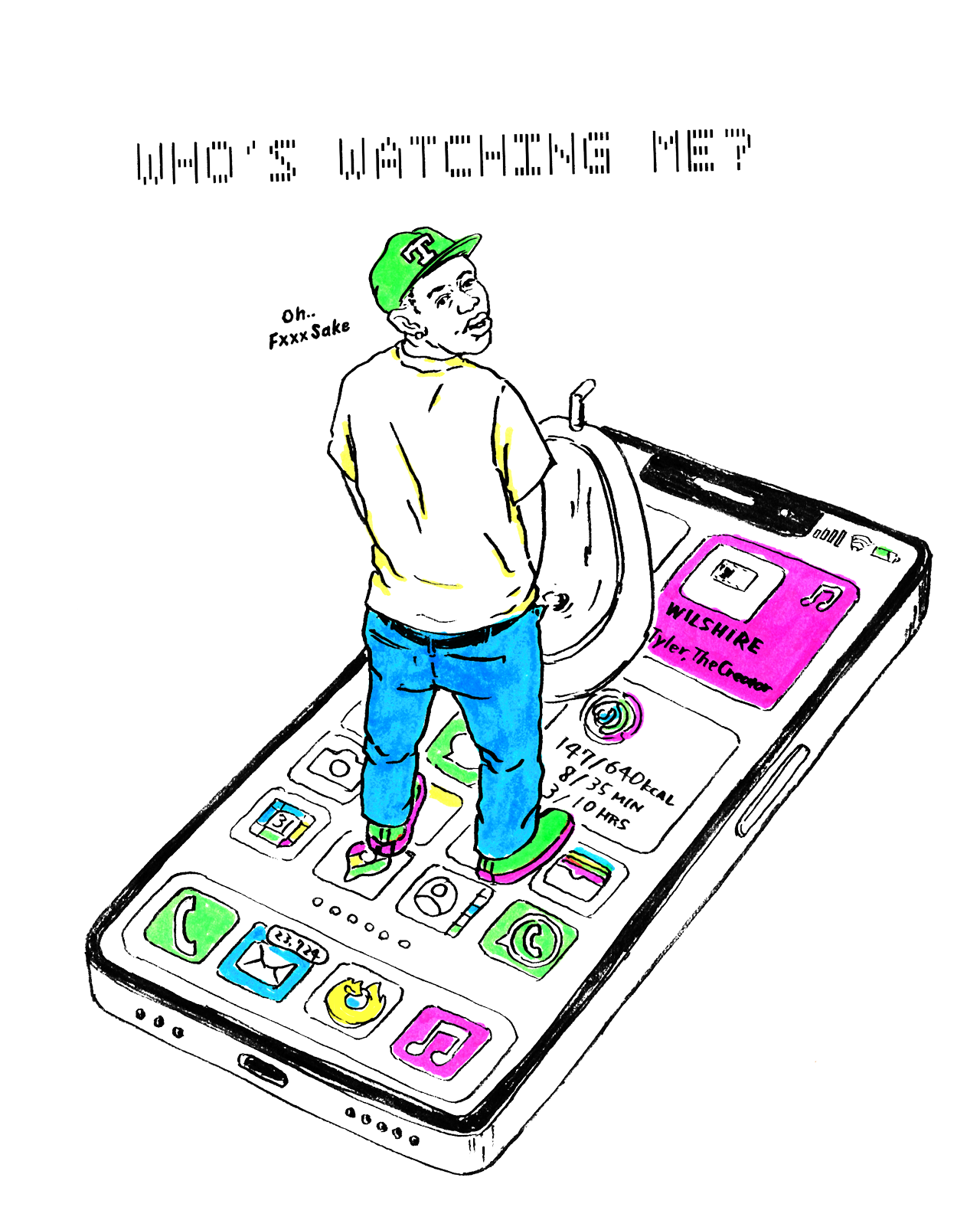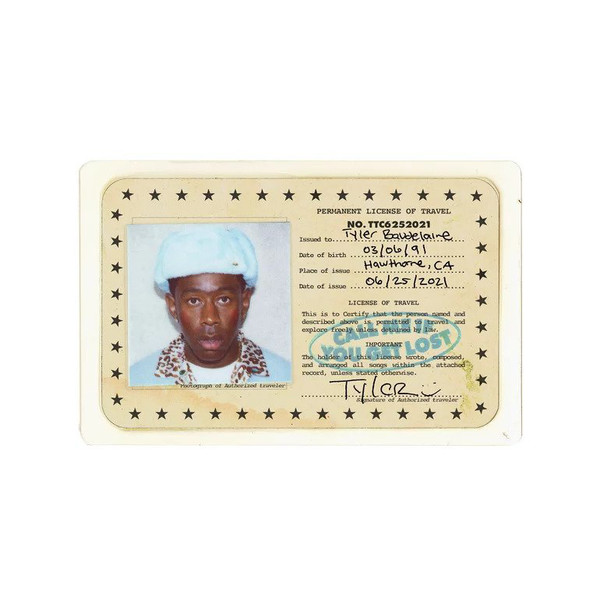Tyler Baudelaire’s fictional ID (Travel Permission) appears on the artwork for “Call Me If You Get Lost,” the latest studio album by American rapper Tyler the Creator.
Taking the name of the French poet Charles Baudelaire, who loved to travel, we can feel his unfathomable love for hip-hop and his aesthetics in the rich variations of songs that make us feel as if we are traveling through the history of hip-hop. Ryoichi Niimoto, who explores American pop culture and literature from a fresh perspective, has chosen Tyler the Creator’s “Wilshire”.
Ann Powers is one of the music critics I trust. She appears on NPR radio and occasionally contributes to their web site, and her piece on Tyler the Creator caught my attention. My curiosity was piqued because she mentioned the topic of one of her novels in the text. The short story “Cat Person,” by American writer Kristen Roupenian, was published in the New Yorker magazine a few years ago, and quickly became a big topic on the Internet.
I read it when it was first published, and I remember that it left me with a bad after-taste. It’s not about the quality of the work, but about the way the characters were portrayed without any back and forth, which made me feel a kind of uncomfortable reality.
The novel’s main character, a college student, meets a much older man who is a customer at the movie theater where she works as a part-time worker. Eventually, the two exchange text messages and fall in love, but perhaps because of the age difference, there is a gap in their hearts that seems to be mutual. If you hear it like this, you might think it’s a story you can find anywhere.
However, as I mentioned earlier, the reality of the story comes from the fact that it depicts a side of humanity that we do not wish to see. For example, when a couple with an age difference first starts dating, they seem to be enjoying each other’s company. However, as time goes by and they start to lose touch with each other, they become cold and curt with each other, revealing the negative side of their relationship that they had been hiding.
Returning to the article by Powers at the beginning of this article, both sides of this human condition are expressed in “Wilshire,” the last song on Tyler the Creator’s latest album, “Call Me If You Get Lost”.
So, I went through the lyrics and found that there are indeed some ethically problematic aspects of the song, such as the selfishness of the narrator in the song.What’s wrong is that the song deals with a love triangle in which the narrator falls in love with his friend’s girlfriend even though he knows she is his friend’s girlfriend (in Tyler’s PV called “Side Street,” the two are shown flirting with each other under the her boyfriend’s eye).
The problem is he my friend, but if I’m honest, I’m really hopin’ you drop
him
It’s morals I really have, it’s lines I could never cross
But you got somethin’ that make all them good intentions get lost
I try to keep it together, never felt this way
The melody line, which starts with an impressive drum sound and is given a jazz flavor by the harmonizing bass, is a perfect match for the monologue style narration. As a result, the narrator of the song, who has slept with his friend’s lover, somewhat tries to justify his actions and adopts an attitude of rejection, which brings an image of self-centeredness and unseemliness to the listener.
On the other hand, it does not mean that they have zero guilt.When she meets him without her friends, the narrator says, “I don’t care if this friendship is ruined for you.”
in the same breath he shows his disapproval, saying he is sorry to be treated this way.
Multiple faces of humanity are surfacing and being discussed in the current age
The character is certainly ugly and disgusting, lamenting the fact that he can’t see his girlfriend, even though he deserves it, and telling her that he wants her to break up with his friend. It’s so true that some people may think that this is a real episode, just like “Cat Person,” but I am not that interested in the personal lives of famous musicians.
What draws me to this songis the multifaceted nature of humanity that it shows, and the surfacing of it that the times bring.As I have already mentioned, the film, which is over eight and a half minutes long, reveals a mixture of selfishness and guilt. However, as the film approaches its conclusion, the tone shifts to one of greater exposure.
And I’m mad private with this side of my life ’cause people are weirdos, and
I just try to keep anyone I care about in the shadows
Safe from the commentary and spotlight and thoughts
‘Cause it’s just a story for the people outside of it
But I guess you’re just another chapter in the book
As for the last phrase, the interpretation of what “book” means may differ. We can read it as people have a wide range of interests, and someone’s love life or ugly news is just one of them. Or, the man who tells this story is an uncontrollable character who is not satisfied with just one partner in love, but is easily distracted and wants to start a relationship with another person.
However, what is significant in this song is not the end, but rather the first few lines.Suppose the narrator is the author Tyler the Creator, who, as a celebrity, is destined to have all his private affairs exposed to the light of day. One of the most prominent aspects of the story is the lament for the loss of privacy, despite the fact that he is still a human being, no matter how famous he is.Another is the way society gazes at an individuals.Needless to say, there are many aspects of human beings. It is not surprising that there is a mean side hidden somewhere, even if it appears on the surface to be kind and sincere, which shows the complexity of human beings.
It could be a hobby, a habit, anything, but it shows a side of a person that they don’t usually show, and while there are others who sympathize with them, there is also the possibility that their image may be damaged. The problem is that we live in the era where, as the lyrics of this song suggest, negative reactions of others are written and spread in an interesting way by social media.Is it too much of a leap to think that “imposing” a fixed image on people is creating a kind of suffocation in modern society? There is no need to be nostalgic, but with the spread of social media and other new means of communication, it seems to me that we need to be open-minded enough to accept others with different “faces” in our time.
Illustration Masatoo Hirano
Edit Sumire Taya




